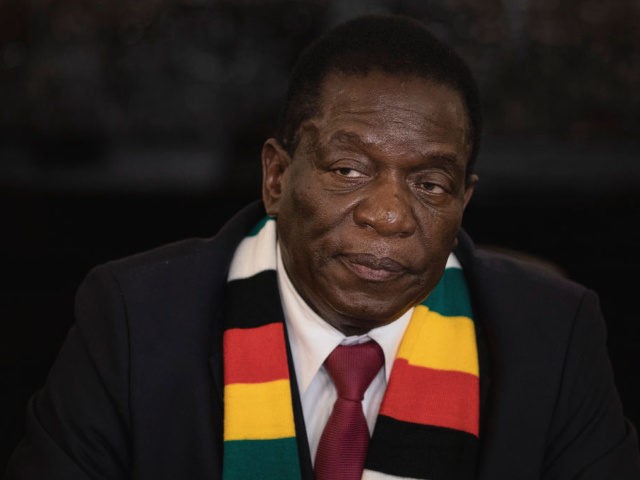China may use its economic presence in Zimbabwe to overthrow President Emmerson Mnangagwa, a lawmaker from the African nation warned on Thursday.
Deadly political unrest over economic reforms proposed by Mnangagwa, mainly a substantial fuel price hike, has been plaguing Zimbabwe this year, fueling anti-government protests across the country in January.
Independent Norton MP Temba Mliswa cautioned on Thursday that the president “faces the danger of either being captured or removed by Chinese nationals operating various businesses” in the African country, the news outlet New Zimbabwe reported Friday.
New Zimbabwe noted that the African country’s president continues to cultivate and expand its economic relationship with Beijing “amid claims the Chinese had a hand in the coup that toppled [former Zimbabwean President Robert] Mugabe in 2017.”
The lawmaker alleged that he recently escaped a kidnapping attempt at a Chinese-owned manufacturing company in his constituency.
During a session of the Zimbabwe parliament on Thursday, the MP declared:
[The] government must review relations with China. I was kidnapped yesterday [Wednesday] in my constituency. Chinese have no respect for the laws of this country. Today it is Mliswa, but next, it will be the President [Mnangagwa].
…They violate the Labor Act most of the time, beating up employers [Zimbabweans]. They have no respect for human dignity. They do shoddy business deals, contracts violated. We no longer have our faces in our own land.
Milswa’s warning came on the same week that Zimbabwe agreed to over $58 million in investment grants from China, dismissing concerns over Beijing’s predatory lending practices.
Zimbabwe and other African countries are a significant component of Beijing’s Belt and Road Initiative (BRI), a massive international infrastructure and technology project that seeks to rebuild and expand the ancient Silk Road to connect China to Europe and the Western Hemisphere.
The U.S. government considers the BRI a threat, warning that it is a vehicle for “debt traps” that China can use to undermine the borrowing countries’ sovereignty.
Several news reports have noted that the terms of these loans allow Beijing to seize the infrastructure projects if the governments cannot pay them, granting China access a foothold on the African continent.
Some BRI recipient countries like Uganda have already expressed concerns about China seizing some of their assets if they default on their loans.
Milswa urged the Zimbabwe government to reexamine its relationship with China.
In Kenya, one of the top BRI recipients, some people accused Beijing of “apartheid” policies, including forced segregation and refusing to give skilled jobs on projects to locals.
Zimbabwean Foreign Affairs and International Trade Minister Sibusiso Moyo, however, praised China this week during a trip to Beijing where he signed various infrastructure agreements.
He said:
The Chinese success story is an illustration of a combination of coordinated strategic planning, effective management and implementation, hard work, discipline and perseverance that must be emulated. Zimbabwe … embraces President Xi Jinping’s vision of a community with a shared future for mankind.
Moyo also dismissed “debt trap” concerns, saying, “It should also be noted that the issue of debt sustainability is a sovereign issue, which should not be a concern to other countries. Our cooperation with China is and has always been on the basis of win-win and mutual trust.”
The Zimbabwean lawmaker also accused China of bringing disease into Zimbabwe, namely an unidentified difficult-to-treat strain of sexually transmitted infections (STIs).
He added, “They hire and fire willy-nilly.”

COMMENTS
Please let us know if you're having issues with commenting.